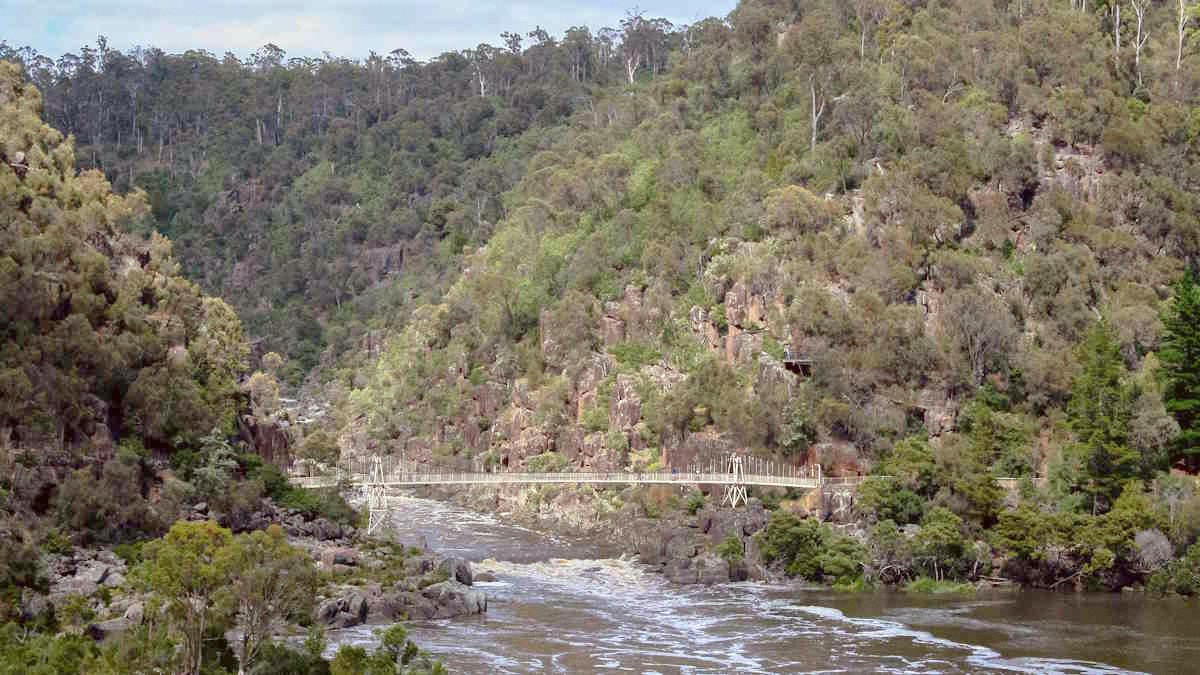
Tasmania, Australia
Tasmania has a high percentage of protected land, including national parks and wilderness areas like Ben Lomond National Park and Tamar Island Wetlands. Stay on marked trails, do not disturb wildlife, and remove all your waste.
Recycling bins for plastics, glass, paper, and cardboard are widely available. Minimize waste by using reusable items like water bottles and coffee cups. Plastic bags are generally banned or charged for at supermarkets.
Tasmania generally has abundant fresh water, but conservation holds importance. Take shorter showers, turn off taps when not in use. Consider offsetting your flight emissions through accredited programs.
Contribute positively to the local environment and community.
Seek properties with eco-certifications like Ecotourism Australia's program. Many Tasmanian businesses follow sustainable practices and advertise their efforts.
Choose tour operators committed to responsible tourism.
Adopt habits that reduce your environmental footprint.
Mitigate the environmental impact of your journey.
Support local markets, like the Harvest Market, and small, independent businesses. Purchases from local vendors directly benefit the community.
Prioritize buying goods directly from local artisans or certified ethical shops. Look for "Tasmanian Made" labels, indicating products produced within the state, supporting local jobs.
Your conscious choices contribute to preserving Tasmania's natural beauty and supporting its local communities.
Engage with Launceston's culture and people with utmost respect, ensuring a positive economic footprint.
Support local cultural institutions and heritage sites, like QVMAG and the UNESCO World Heritage-listed Brickendon and Woolmers Estates. Your visits contribute to their upkeep.
Be polite and friendly. Australians appreciate directness and a sense of humor. Acknowledge greetings and use polite terms. Ask permission before taking photos of people, especially children.
Do not photograph Aboriginal sacred sites or cultural events without explicit permission; these places hold deep spiritual meaning.
If visiting churches or other religious sites, dress respectfully, ensuring shoulders and knees are covered. Be quiet and mindful during services or worship.
Choosing local businesses boosts the regional economy and supports unique enterprises.
Choose local restaurants and cafes over large chains to support the local economy.
Purchase goods and services from local vendors and independent shops.
Opt for local tour operators; they share unique insights into the region.
Support the local economy and engage in responsible giving.
Prioritize buying goods directly from local artisans or certified ethical shops. Look for "Tasmanian Made" labels, indicating products produced within the state.
Support local markets, like the Harvest Market, and independent businesses. Purchases from local vendors direct money into the community.
Avoid purchasing goods that contribute to unethical practices. Do not engage in any form of unethical tourism, like those involving animal exploitation.
If you wish to donate, give to registered charities or community organizations rather than directly to individuals on the street.
Every spending choice leaves a mark. Direct your resources to benefit the local community.
Choosing local establishments keeps money within Launceston.
Opt for "Tasmanian Made" items and ethical goods.
Ensure your travel choices align with ethical and sustainable practices to foster positive impacts.
Every dollar spent locally and every conscious choice supports Launceston's community and environment.